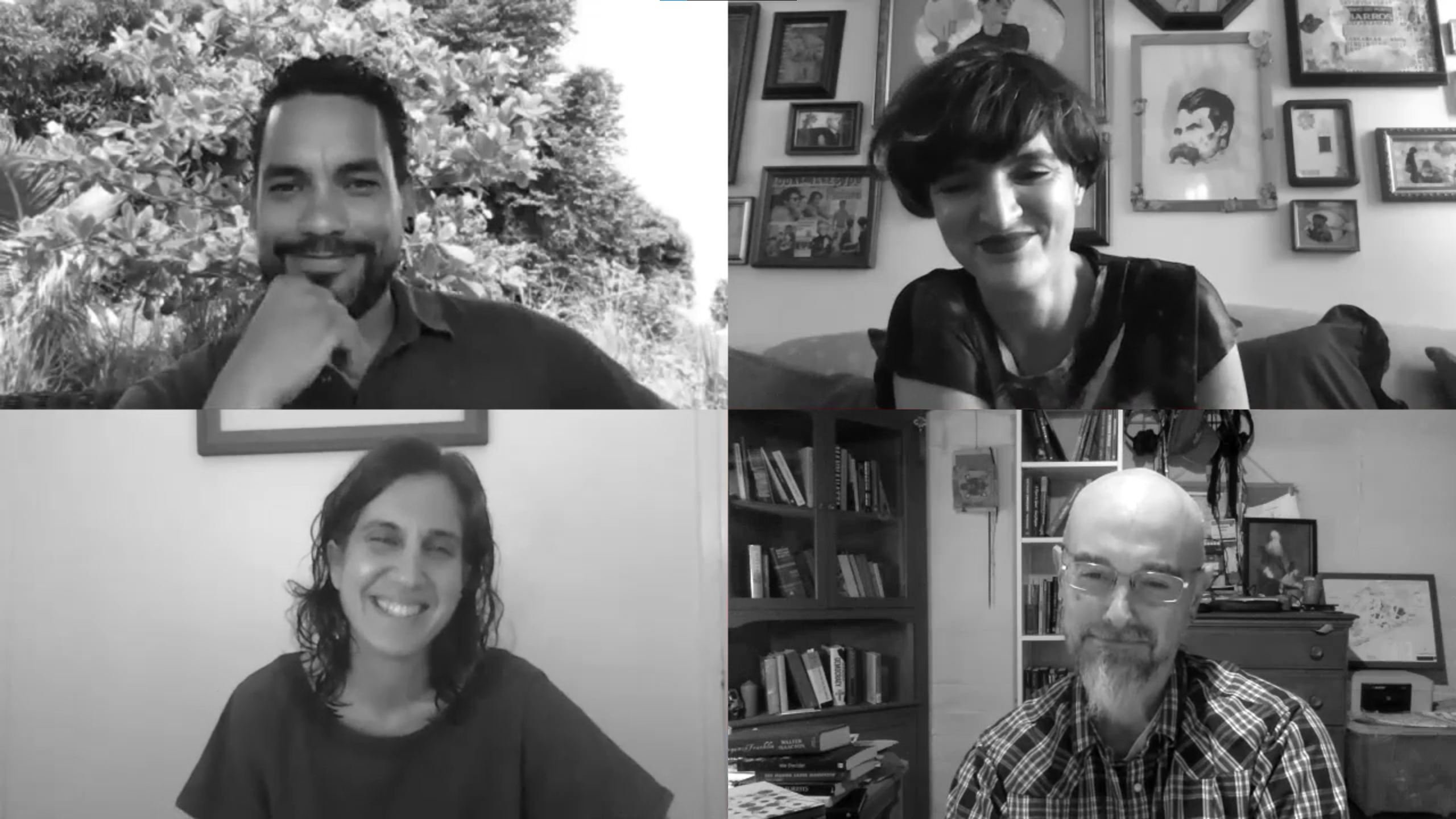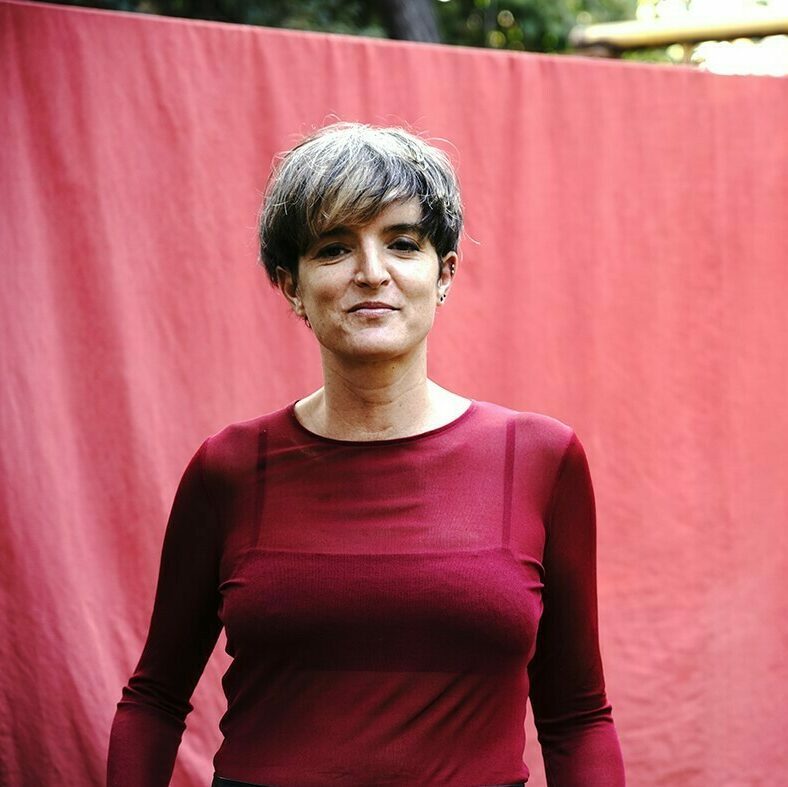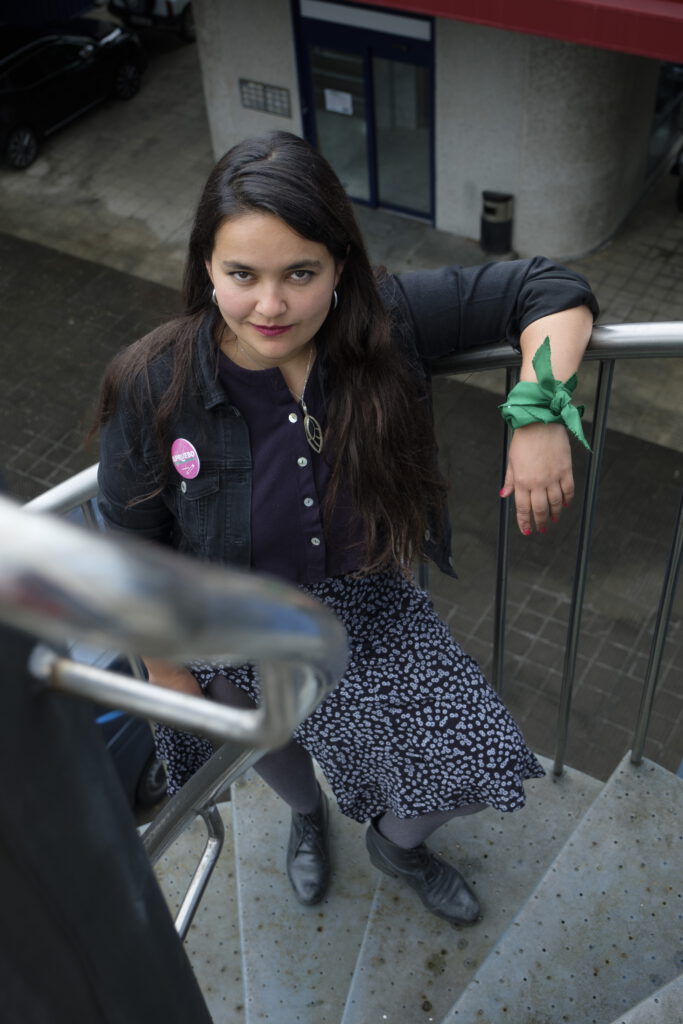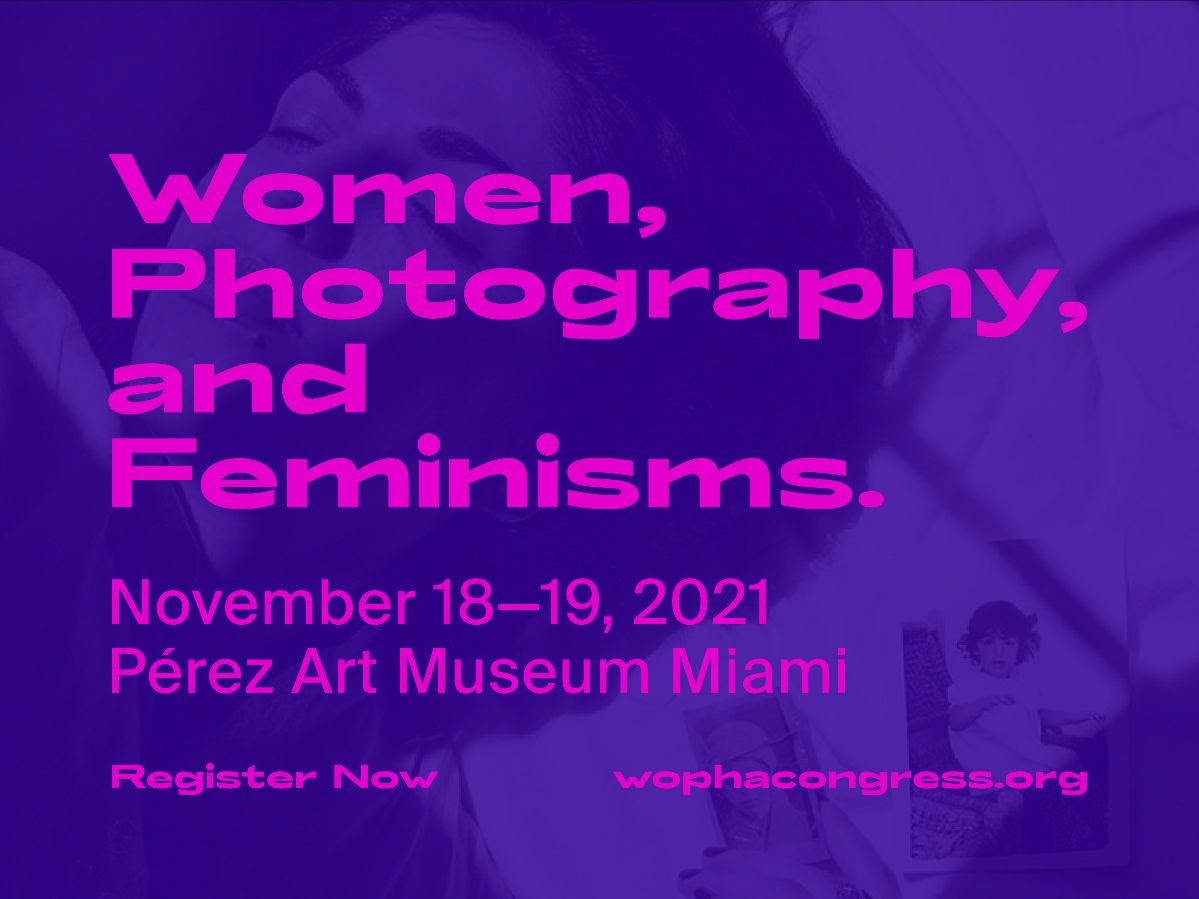no + porque somos + Expanding Feminist Ways of Thinking-Feeling-Doing
Wed, Oct 19, 2022
6:00 PM–8:00 PM
This event will take place in the Martin E. Segal Theatre at the CUNY Graduate Center. The event will be in Spanish with English interpretation. Please register below.
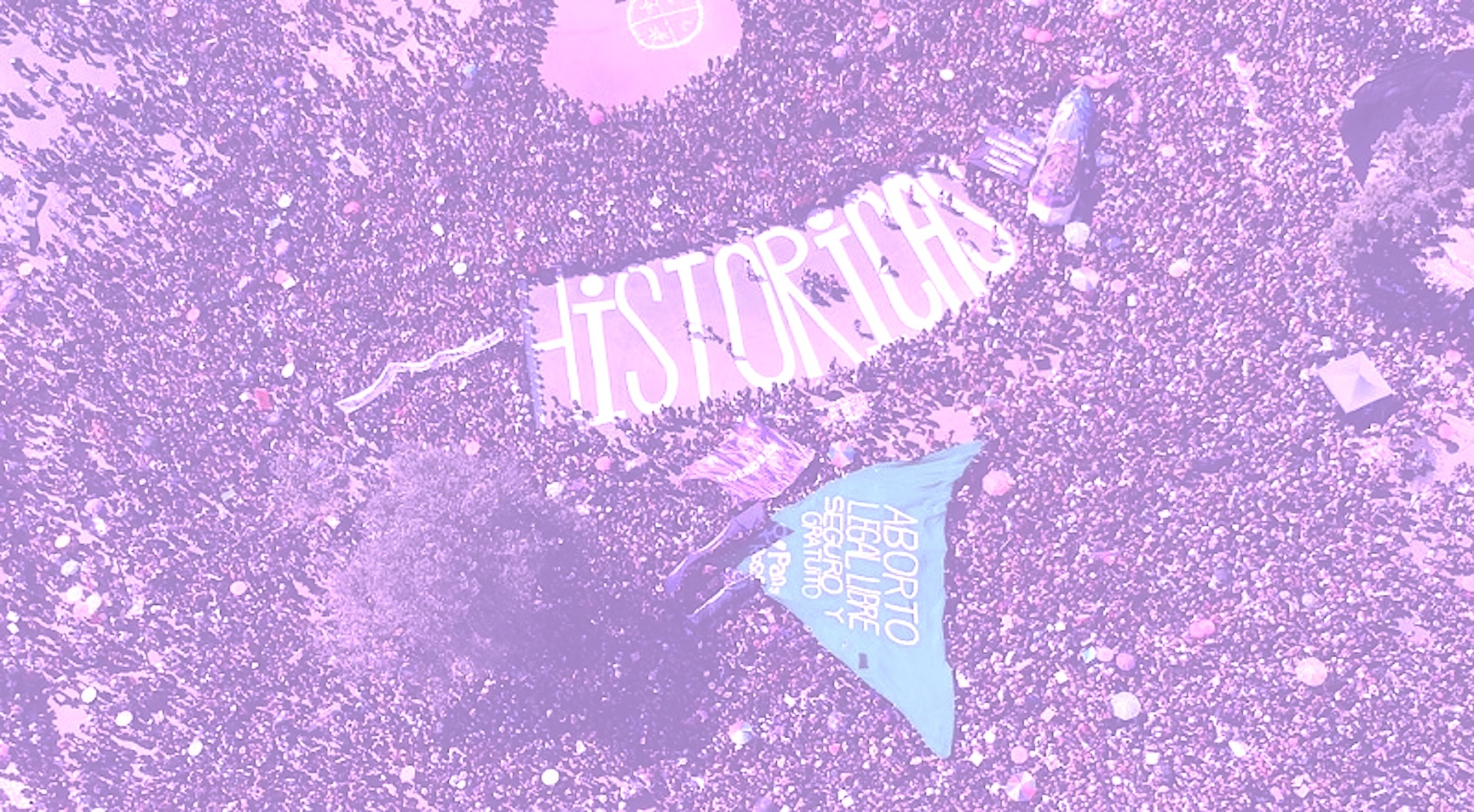
Join us for “no + porque somos + Expanding Feminist Ways of Thinking-Feeling-Doing,” a conversation with three prominent feminist activists, archivists, educators, artists, and thinkers, Lucía Egaña (Musea M.A.M.I., CENEX, Pluriversidad Nómada), Javiera Manzi (Coordinadora Feminista 8M; Red de Conceptualismos del Sur, Brigada Laura Rodig), and Sibila Sotomayor(LASTESIS), moderated by Professor Ángeles Donoso Macaya, as part of “expanding feminisms / feminismos en expansión“a week-long series of activities with these inspiring Chilean feminists inside and outside the brick walls of New York City’s public university, CUNY. This conversation will center the role of archival practices, collective memory work, and transnational/internationalist network formation within current feminist movements in Chile and beyond. The three guest speakers have participated in the collective creation of situated practices to synthetize feminist theories; disseminate feminist demands; educate around feminist ideas and issues; recover, make memory and archive ways of doing and knowing formulated by previous feminist collectives. Their work has also attempted to put forward different ways of relating to, and inhabiting, institutions—universities, museums, and political movements.
This event will take place in the Martin E. Segal Theatre at the CUNY Graduate Center. The event will be in Spanish with English interpretation. CLICK HERE TO REGISTER & ATTEND.
Propelled by massive grass-roots mobilizations, Chile has undergone unprecedented transformations in the last three years. Currently, the country is undergoing a process to have a new constitution to replace the one written by the civic-military dictatorship and that set the neoliberal rules that have governed the country for more than 40 years. This process began in October 2019 with a popular uprising that denounced the precarity of life under this neoliberal, patriarchal and colonial system. Both the student movements and the feminist movements had a leading role in this process. One of the stars of the current feminist constellation–and certainly one antecedent to the 2019 uprising–began to shine brightly in Chilean universities in the “feminist May” of 2018 with a university takeover to protest cases of harassment and sexual abuse at the School of Humanities of the Universidad Austral in Valdivia. This takeover was quickly followed at the Law School of the University de Chile in Santiago and in a dozen other schools throughout the country. Since then, the feminist movement continues to grow, organizing itself through assemblies and collectives across the territories, recovering and articulating demands which were echoed during the uprising and were translated into articles in the proposal for a new constitution (recently rejected in a referendum), including equal representation (representación paritaria) at all levels of governance, non-sexist education, and the legalization of abortion.
The recovery of demands, slogans and repertoires of actions formulated by previous feminist movements has been an integral part of this work. This way of making feminist memory, one that reveals the continuity between the past and the present and that insists on the unresolved nature of these demands, does not repeat in the same way, but recovers by expanding, by making identity categories ever more complex (example in case: the category “women”) and articulating different struggles. This is the case of both “No +” and “Somos +”, two slogans disseminated by the Women for Life Movement in the eighties, under the civic-military dictatorship (1973-1990), which have been recovered and re-signified by the current feminist movement. In neoliberal Chile, this recovery highlights the continuity between the feminist struggles of “yesterday and today”.
Another effective tactic has been the synthesis and dissemination of feminist ideas and feminist theory through collective performance, such as LASTESIS’ un violador en tu camino. The situated reactivation of feminist ideas and the recovery of past slogans decenters the notion of individualized authorship, dismantles that androcentric conceptualization of the past understood as a closed temporality (one detached from the present), and reveals the place of memory and the archive in feminist politics.
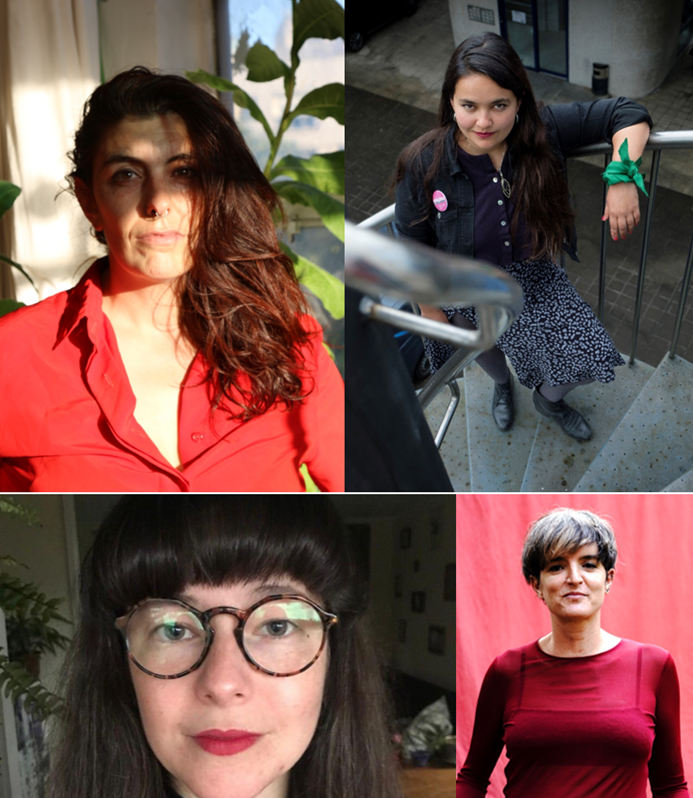
This event is sponsored the Archives in Common: Migrant Practices/Knowledges/Memory project
as part of the Seminar on Public Engagement and Collaborative
Research from the Center for the Humanities at the Graduate Center CUNY

This event is part of expanding feminisms / feminismos en expansión which brings together a series of activities inside and outside the brick walls of New York City’s public university, CUNY, for a week. The different events center distinct aspects of the activist, archival, and artist practices of three inspiring Chilean feminists, Lucía Egaña,Javiera Manzi, and Sibila Sotomayor (LASTESIS). This week-long event includes in-person conversations with CUNY students at BMCC and lectures and remote/online visits to classes; an in-person conversation between these three archivists, activists, and artists, open to the general public moderated by Professor Ángeles Donoso Macaya and hosted at the CUNY Graduate Center; a round table with GC postgraduate students and the guests, organized in collaboration with LAILAC and OpenLAB students; a memory and arts workshop at the Bruckner Mott Haven Community Garden, in The Bronx, facilitated by food educator, sou-chef of La Morada restaurant and Archives in Common collaborator chef Carolina Saavedra, with the participation of the three guests; a panel discussion on feminist books (co)written or (co)edited by the guest speakers, at Recirculation/A Word Up Project, a community bookstore and cultural space located Washington Heights; a performance workshop facilitated by Sibila Sotomayor and a workshop on collective creation/reflection lead by Lucía Egaña.
—————————————————-
Impulsado por movilizaciones de base masivas, Chile ha experimentado transformaciones sin precedentes en los últimos tres años. Actualmente, el país se encuentra en un proceso constituyente, con el objetivo de redactar una nueva constitución que reemplace aquella promulgada durante la dictadura cívico-militar y que estableció las reglas neoliberales que han regido al país por más de 40 años. Este proceso se inició en octubre de 2019 con una revuelta popular que denunciaba la precariedad de la vida bajo el sistema neoliberal, patriarcal y colonial. Tanto los movimientos estudiantiles como los movimientos feministas tuvieron un papel protagónico en este proceso. Una de las estrellas de la constelación feminista actual, y ciertamente un antecedente de la revuelta popular del 2019, comenzó a brillar en las universidades en el “mayo feminista” del 2018 con una toma universitaria para protestar por los casos de acoso y abuso sexual en la Facultad de Humanidades de la Universidad Austral de Valdivia. Esta toma fue seguida muy pronto por otra en la Facultad de Derecho de la Universidad de Chile en Santiago y en una docena de otras facultades a lo largo del territorio. Desde entonces, el movimiento feminista siguió expandiéndose fuera de los confines de la universidad, organizándose a través de asambleas y coordinadoras en los distintos territorios, recuperando y articulando demandas históricas que hicieron eco en la revuelta y que quedaron plasmadas en artículos en la propuesta de nueva constitución (recientemente rechazada en referéndum), incluida la representación paritaria en todos los niveles de gobierno, la educación no sexista y la legalización del aborto.
La recuperación de demandas, consignas y repertorios de acciones formuladas por movimientos feministas anteriores ha sido parte integral de este trabajo. Esta forma de hacer memoria feminista, una que revela la continuidad entre el pasado y el presente y que insiste en el carácter pendiente de estas demandas, no repite de la misma manera, sino que recupera expandiéndose, complejizando cada vez más las categorías identitarias (por ejemplo: la categoría “mujeres”) y articulando distintas luchas. Este es el caso de “No+” y de “Somos+”, dos consignas diseminadas por el Movimiento Mujeres por la Vida en los años ochenta durante la dictadura cívico-militar (1973-1990), que han sido recuperadas y resignificadas por el movimiento feminista actual. En el Chile neoliberal, esta recuperación destaca la continuidad entre las luchas feministas de ayer y de hoy.
Otra táctica eficaz ha sido la síntesis y diseminación de ideas formuladas por la teoría feminista a través de performances colectivas, como es el caso de un violador en tu camino de LASTESIS. La reactivación situada de ideas feministas y la recuperación de consignas pasadas descentra la noción de autoría individualizada, desmonta esa conceptualización androcéntrica del pasado entendido como una temporalidad cerrada (desligada del presente), y revela el lugar de la memoria y el archivo en la política feminista.
Acompáñennos en esta conversación con tres inspiradoras activistas, archivistas, educadoras, artistas y pensadoras feministas, Lucía Egaña, Javiera Manzi y Sibila Sotomayor, moderada por la profesora Ángeles Donoso Macaya. La conversación se centrará en el papel de las prácticas de archivo, el trabajo de memoria colectiva y la formación de redes transnacionales / internacionalistas dentro de los movimientos feministas actuales en Chile y Sudamérica. Las tres invitadas han participado en la creación colectiva de prácticas situadas con el objetivo de sintetizar y difundir teorías feministas y demandas feministas; educar sobre ideas y temas feministas; recuperar, hacer memoria y archivar formas de hacer y saberes formulados por colectivos feministas anteriores. Su trabajo también ha intentado plantear diferentes formas de relacionarse y habitar las instituciones: universidades, museos y movimientos políticos.
Este evento está auspiciado por el ACLS Mellon Community College Faculty Fellows Program, “El archivo fotográfico en expansión de los movimientos feministas en Chile”; “Archivos en Común”, parte del Seminario sobre Participación Pública e Investigación Colaborativa, financiado por la Fundación Andrew W. Mellon; el Ph.D. Program in Latin American, Iberian, and Latino Cultures, The Graduate Center, CUNY; y el programa de Women’s and Gender Studies, The Graduate Center, CUNY.
Participants
Related Events
Conversation
Undisciplined Scholarship: A Conversation with Jorge Díaz and Ángeles Donoso Macaya on Art, Activism, Science, and Writing as a Situated Practice

Book Launch & Conversation
Set Fear on Fire! Book Launch + Conversation with Colectivo LASTESIS (Chile)
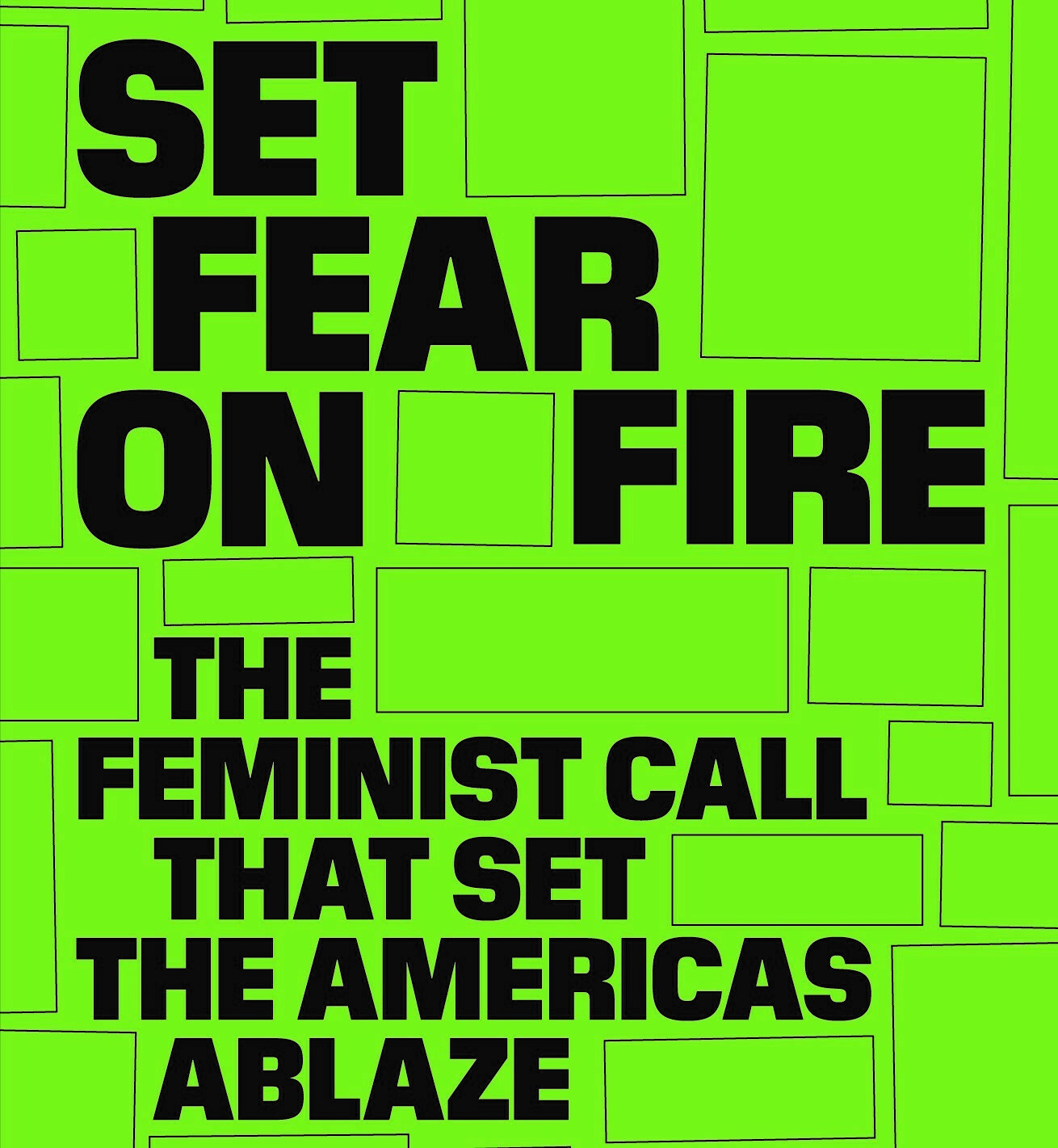
Book Launch & Conversation
Book Launch: Las hermanas de la milpa: comienza con la calabaza / The sisters of the milpa: it begins with the squash
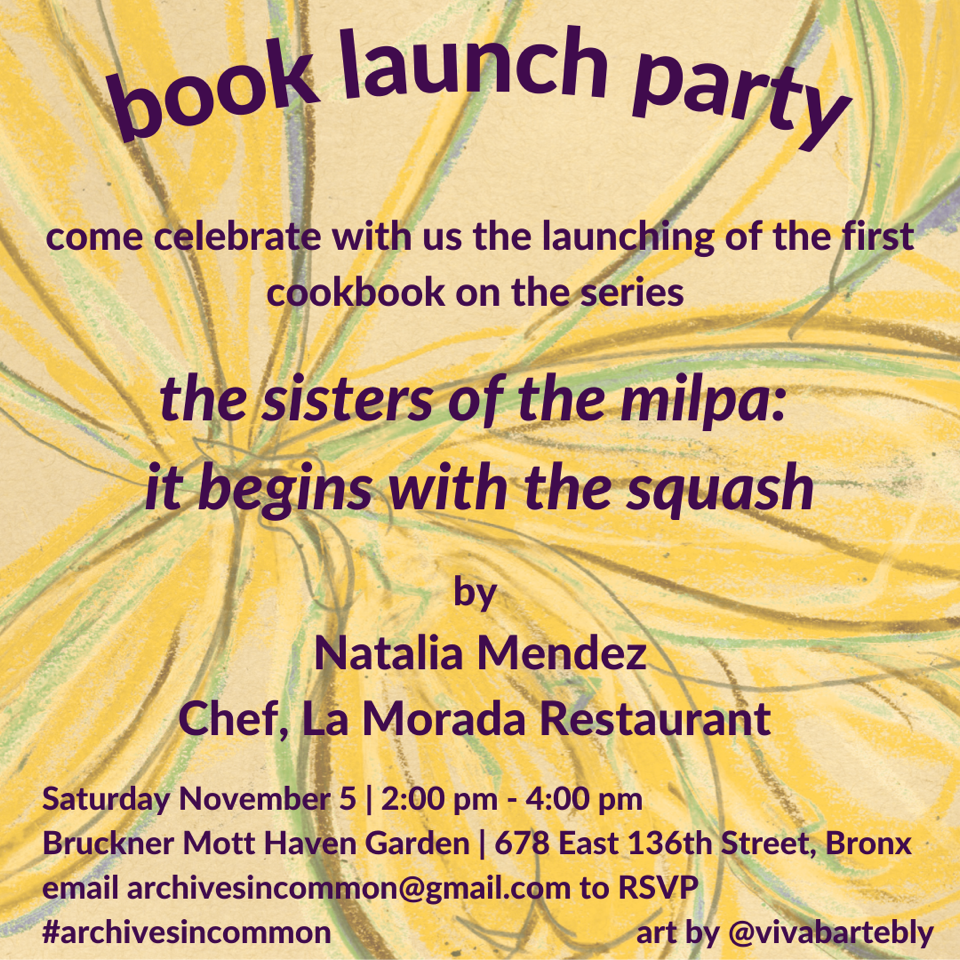
Lecture
Documentary Reverberations: “Exploring the Photographic Field in Chile under Dictatorship” a lecture by Ángeles Donoso Macaya

Conversation
Situated Cameras: A Conversation with Photographers Zahara Gómez and Cinthya Santos-Briones

Conversation & Screening
Fighting Back Racism and Food Injustice Thru Green Spaces
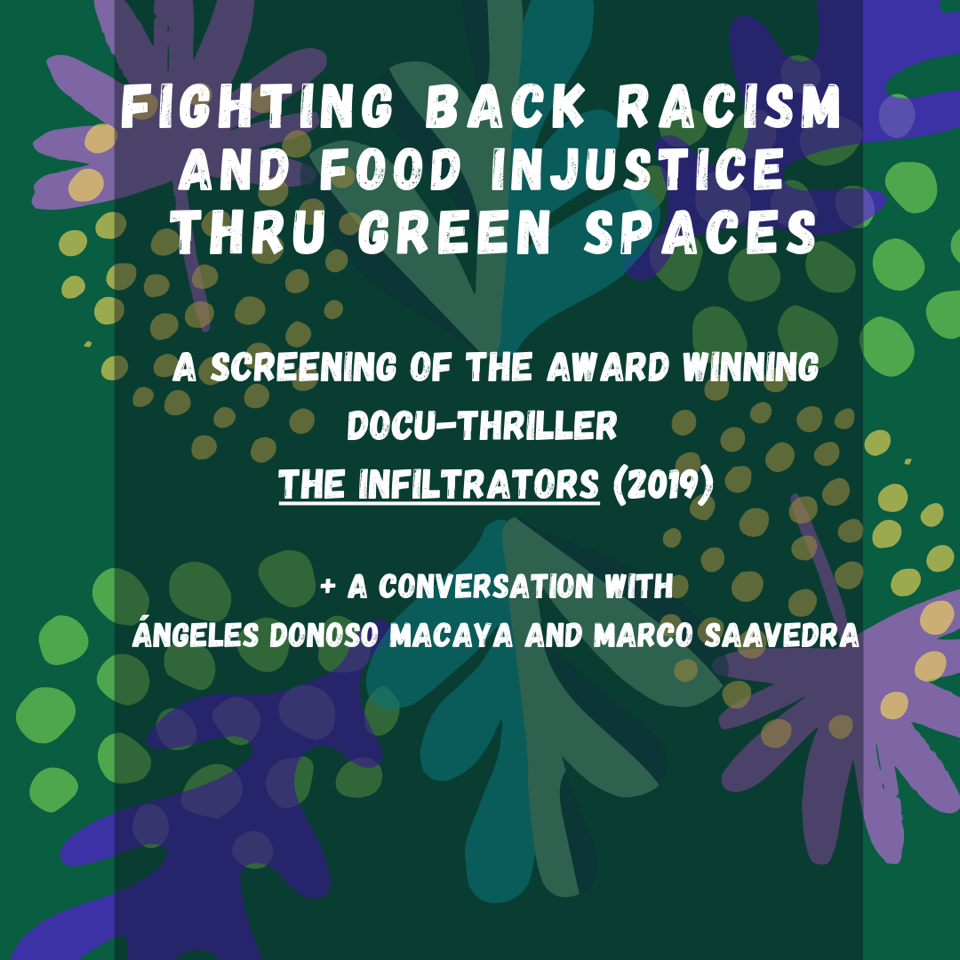
Conversation
Socializing Toxic Clouds: A Conversation with Samaneh Moafi, Imani Jacqueline Brown, Robert Trafford & Anna Feigenbaum
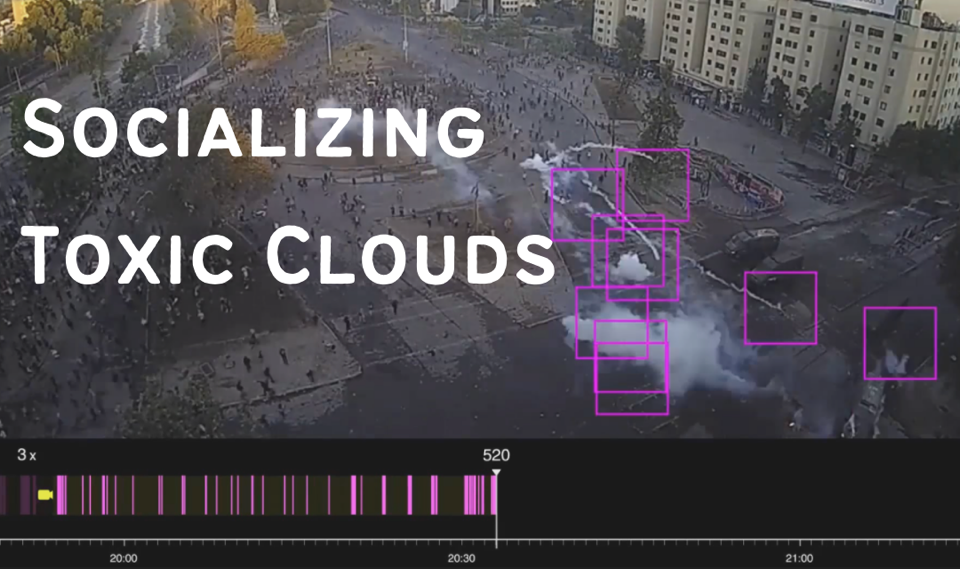
Conversation
The Undocumented-Led Struggle for Freedom: A Conversation with the Authors of Eclipse of Dreams
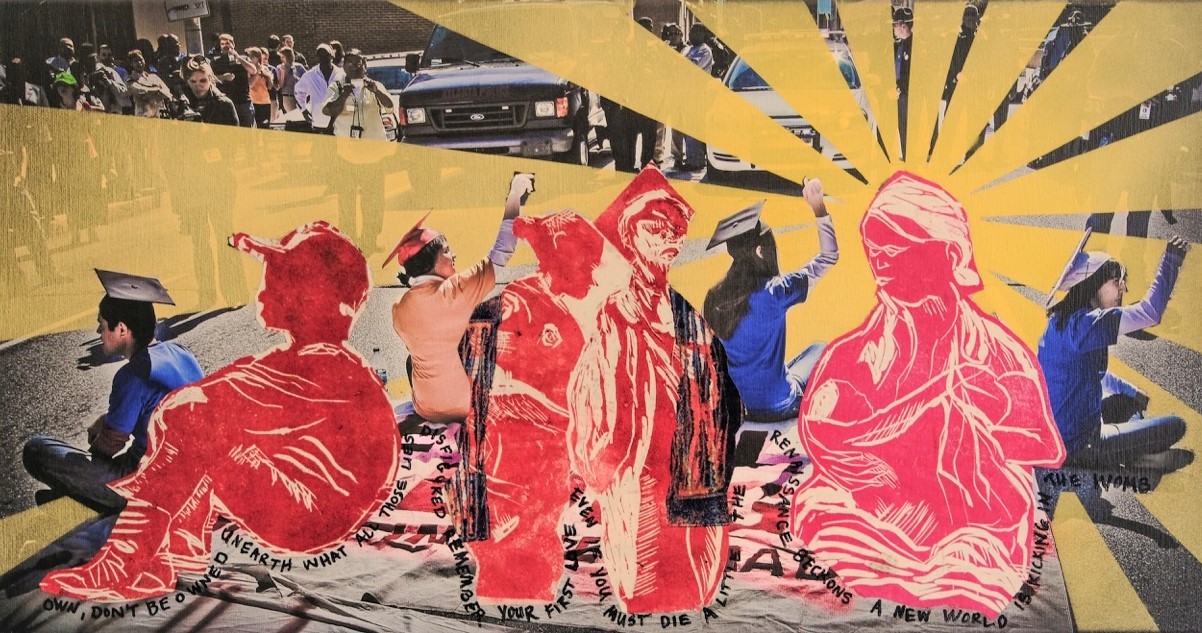
Conversation
Food Justice, Activism, and the Public University: A Conversation
